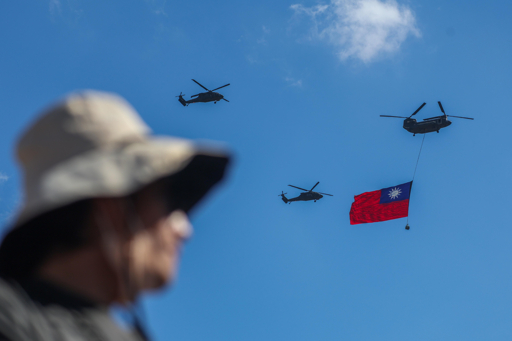The Taiwan test: Why Europe should help deter China --
The Taiwan test: Why Europe should help deter China --
The Taiwan test: Why Europe should help deter China | ECFR

cross-posted from: https://scribe.disroot.org/post/5800263
- China is building up its military and is projected to have the capability to launch major combat operations against Taiwan by 2027.
- Historically, America has provided the deterrent to Chinese aggression. But shifting geopolitics mean that it is in the EU’s interest to help Taiwan defend itself and force China to reconsider the risks of military action.
- The Chinese government is becoming bolder: sending arms supplies to Russia, undermining security on European soil and engaging in protectionist policies that damage European trade and supply chains.
- European defence cooperation with Taiwan would bolster deterrence against Chinese aggression in the Taiwan Strait and beyond, helping secure stability for global trade and signalling that European leaders can stand firm rather than yield to pressure.
- The EU and its member states can start by encouraging industry-led initiatives and dual-use technology collaboration to strengthen Taiwan’s deterrence and safeguard European interests.
...
China is constructing a wartime command complex on the western outskirts of Beijing that will be roughly the size of 50 Pentagons. This “Beijing military city”, featuring deep underground bunkers to shield top Communist Party and military leaders, signals that the country is preparing for high-stakes conflict. The Chinese military is also ramping up its capabilities: it is expanding missile infrastructure in eastern China, it has almost tripled its inventory of precision-attack ballistic and cruise missiles, and now operates 134 air bases that can sustain air operations near Taiwan. The Chinese military is projected to have the capability to invade Taiwan by 2027.
...
For decades, the EU has shied away from involvement in the Taiwan issue. The bloc follows a “one-China policy”, which recognises the People’s Republic of China (PRC) led by Beijing as the sole legitimate government representing China. While the EU does not extend diplomatic recognition to Taiwan, it maintains strong economic and substantive ties with it. The policy seeks to preserve stability by maintaining the status quo in the Taiwan Strait.
...
Yet European “appeasement” towards China has not produced the desired results. China leverages its vast market and critical role in global supply chains to exert influence in the EU, often using trade policies, investment strategies and control over strategic materials to advance its interests. Geopolitically, Beijing has also become increasingly assertive, going so far as to supply Russia with weapons for its war in Ukraine. As the global security environment deteriorates, Taiwan’s strategic needs converge with those of Europe. Now, Europe helping Taiwan defend itself is a key way to stem China’s assertiveness; what was once unthinkable is becoming not only conceivable but also necessary. European policymakers have been debating economic sanctions on China to respond to its new positioning, but they should also consider transferring defensive equipment to Taiwan—a topic far from the top of the agenda.
...
It is precisely with defence transfers that European countries could help Taiwan forestall a crisis with China that could disrupt global trade and push China closer to Russia. By transferring advanced technology and expanding Taiwan’s defence capacity, the EU can force China to recalculate the risks and sustainability of an invasion scenario, thereby making a meaningful contribution to the credibility of deterrence. The firmer the EU’s support for Taiwan, the clearer the red lines that Beijing must reckon with. Placing defence transfers higher on Europe’s agenda with Taiwan would send China one of the most resolute signals of determination. This would show Beijing that the EU means business—not just in Taiwan, but also on economic issues within the EU itself.
...
Taiwan is a highly complementary partner for European industries. In addition to its recent partnerships with Poland and Ukraine on drones, Taiwan is a world leader in semiconductors and electronics, and boasts deep expertise in precision engineering, notably in metal materials, machine tools and advanced manufacturing.[22] Taiwanese firms have also built solid foundations in aerospace components, materials research, aircraft production and maintenance, and related systems. Many of them can meet European certification standards on a case-by-case basis. This industrial strength presents fertile ground for reciprocal and high-value defence-industrial collaboration between Taiwan and Europe.
Such two-way cooperation would align with the EU’s strategy of de-risking from China. It would also strengthen European supply-chain resilience and cost efficiency in Asia, while allowing Taiwan to benefit from European institutional experience and regulatory frameworks to scale up its industrial and technological base. By sharing industrial data, testing and certification results, and market insights, both sides can gradually build mutual trust—establishing confidence in each other’s production capacity, quality control and supply chain security.
Over time, this mutual understanding and trust could also enhance European confidence in Taiwan’s export-control and non-proliferation standards. This would reduce perceived political risks and pave the way for more regular and transparent defence cooperation—that would, in turn, strengthen European supply chains, boost industrial competitiveness and enhance the EU’s credibility as a security actor in the Indo-Pacific.
...